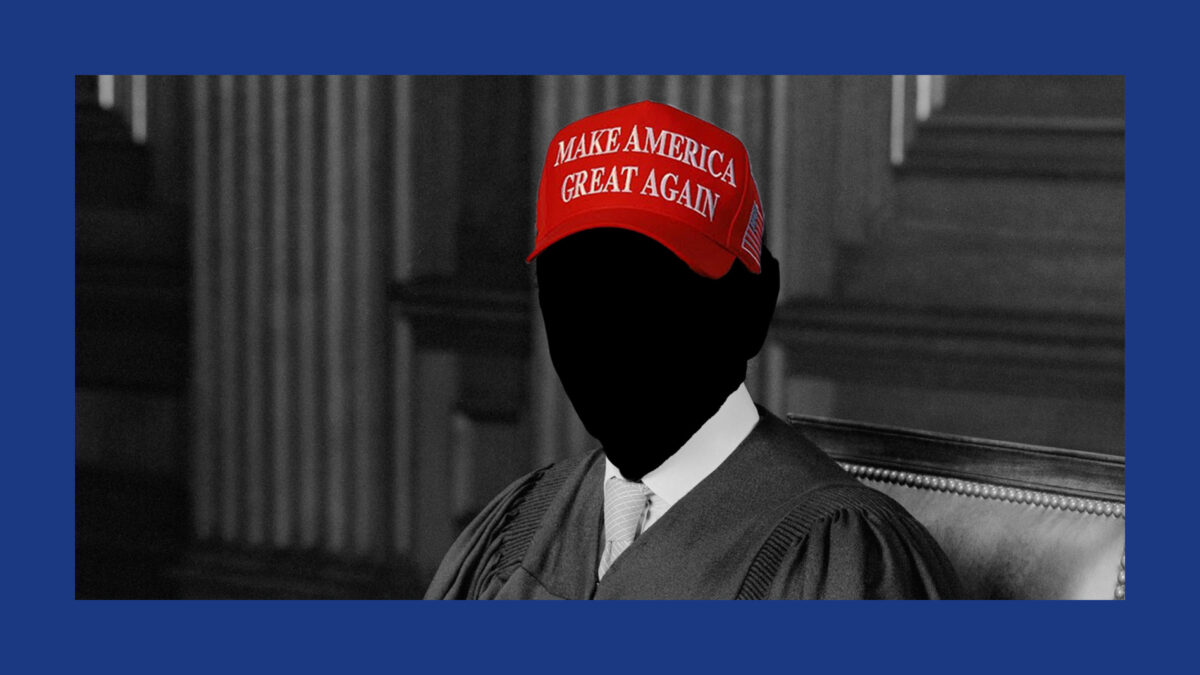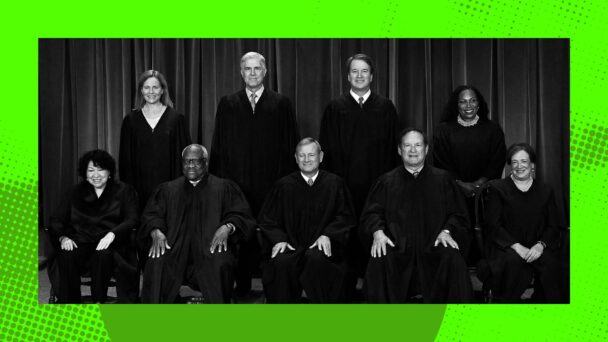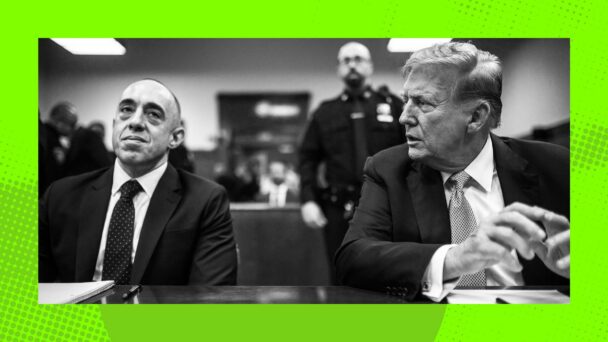Vacancies
Since Trump won reelection in November, only 18 judges have created new vacancies for him to fill. The vast majority—16 of 18—have been district judges, and13 of those 16 were appointed by Republican presidents. Five of the 16 vacancies are to courts in states with Democratic senators, meaning that, as long as Judiciary Committee Chair Chuck Grassley maintains the Senate’s blue slip tradition, Trump cannot appoint a replacement without Democratic approval. In total, there are 46 current vacancies and 15 future vacancies.
The bigger news is the two new vacancies on the federal courts of appeals: In mid-March, Seventh Circuit Judge Diane Sykes and Ninth Circuit Judge Sandra Ikuta both announced that they would soon assume senior status—a form of semi-retirement that creates a vacancy for the president to fill.
Sykes has been an influential voice in the conservative legal movement since her appointment by President George W. Bush in 2004, and was twice considered for elevation to the Supreme Court—first as a replacement for Justice Sandra Day O’Connor in 2005, and then again for Justice Anthony Kennedy in 2018. A quick glance at her record reveals why. In 2013, she blocked enforcement of the Affordable Care Act’s requirement that employee health care plans provide contraception coverage, finding that it burdened the free exercise of religious employers. In 2014, she held unconstitutional Wisconsin’s $10,000 cap on political contributions made by individuals, setting the stage for Elon Musk to contribute nearly $30 million in his bungled attempt to buy the most recent state supreme court race. And in 2017, she determined that Title VII of the Civil Rights Act of 1964 did not bar employers from discriminating on the basis of sexual orientation–a view later rejected by the Supreme Court in Bostock v. Clayton County.
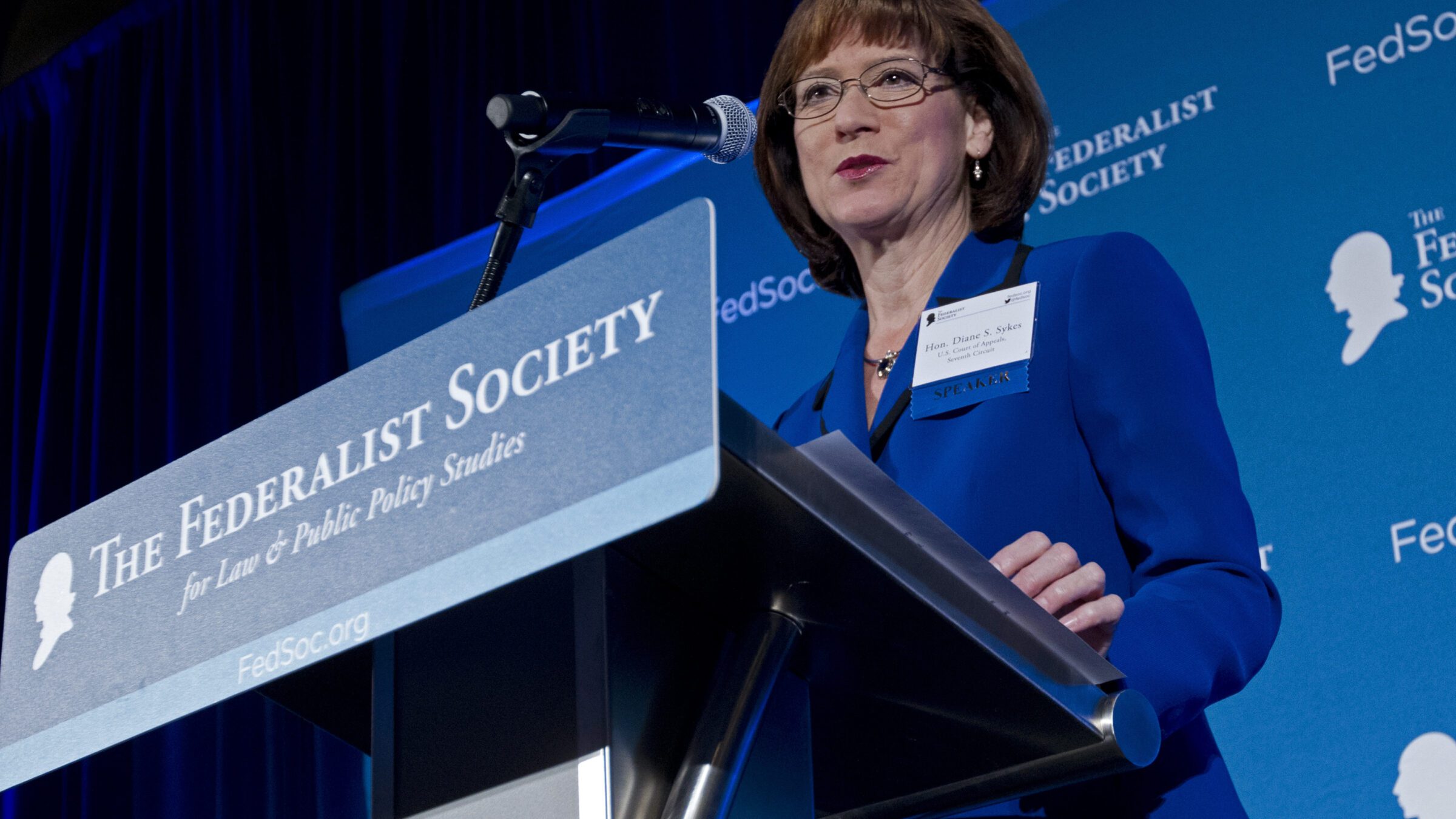
Sykes speaks at a Federalist Society event, November 2016 (AP Photo/Jose Luis Magana)
Ikuta, appointed by George W. Bush to the Ninth Circuit in 2006, is less well known than Sykes, but equally regarded for her conservative bona fides. Among the most frequent dissenters on the country’s most liberal appeals court, Ikuta would have sided with religious objectors to an otherwise neutral and generally applicable vaccine mandate meant to limit the spread of COVID-19 in schools. She also would have held unconstitutional California’s anti-fraud requirement that charitable organizations disclose tax forms with the identities of their major donors to the state attorney general’s office—a regulation the Supreme Court eventually struck down along party lines in Americans For Prosperity Foundation v. Bonta.
More recently, after Trump appointed 10 judges to the Ninth Circuit in his first term, Ikuta has had an easier time garnering a majority. In 2019, she permitted the Department of Justice to withhold grant money from so-called sanctuary cities that refused to cooperate with Trump’s immigration crackdowns. And in 2020, she allowed the Trump administration to withhold federal funds from health clinics that provided referrals for abortion.
Trump’s replacements for Sykes and Ikuta won’t change the partisan balance on either court, and likely won’t push either much further to the right. But their decision to allow a president who doesn’t know whether he’s oath-bound to uphold the Constitution to appoint their replacements will unquestionably make the judiciary worse, and for decades to come.
Nominees
Although behind the pace of his first term—by this time in 2017, Trump had already appointed a Supreme Court justice and had a circuit court judge in the confirmation pipeline—on May 1, Trump finally announced the first nominee of his second term (albeit in a bizarre late-night Truth Social rant): Whitney Downs Hermandorfer of Tennessee to the U.S. Court of Appeals for the Sixth Circuit. She would replace Judge Jane Branstetter Stranch, an Obama nominee who announced her conditional retirement in January 2024. (As I previously noted, Stranch would be well within her rights to withdraw her retirement and remain in active service, but hasn’t given any indication that she plans to do so.)
At first blush, Hermandorfer looks very much like the typical nominee from Trump’s first term. She is young (37), white, and impeccably credentialed. She’s been a frequent participant at Federalist Society events, and clerked for Justices Samuel Alito and Amy Coney Barrett on the Supreme Court, and for then-Judge Brett Kavanaugh on the D.C. Circuit. You couldn’t grow someone in a lab with deeper ties to the conservative legal establishment if you tried (and that won’t stop the Federalist Society from trying, I’m sure). Leonard Leo would surely approve.
Except Leo and the Federalist Society aren’t making the judicial picks anymore. That honor has fallen to the likes of Mike Davis, a former nominations counsel to Senator Chuck Grassley who now leads a conservative legal activist group when he isn’t tweeting about putting kids in cages. In a recent Fox News screed, Davis made clear that Trump has promised to go “beyond the garden-variety Federalist Society choices” for judicial nominees and instead find “even more bold and fearless” (read: loyal) candidates to do his bidding.
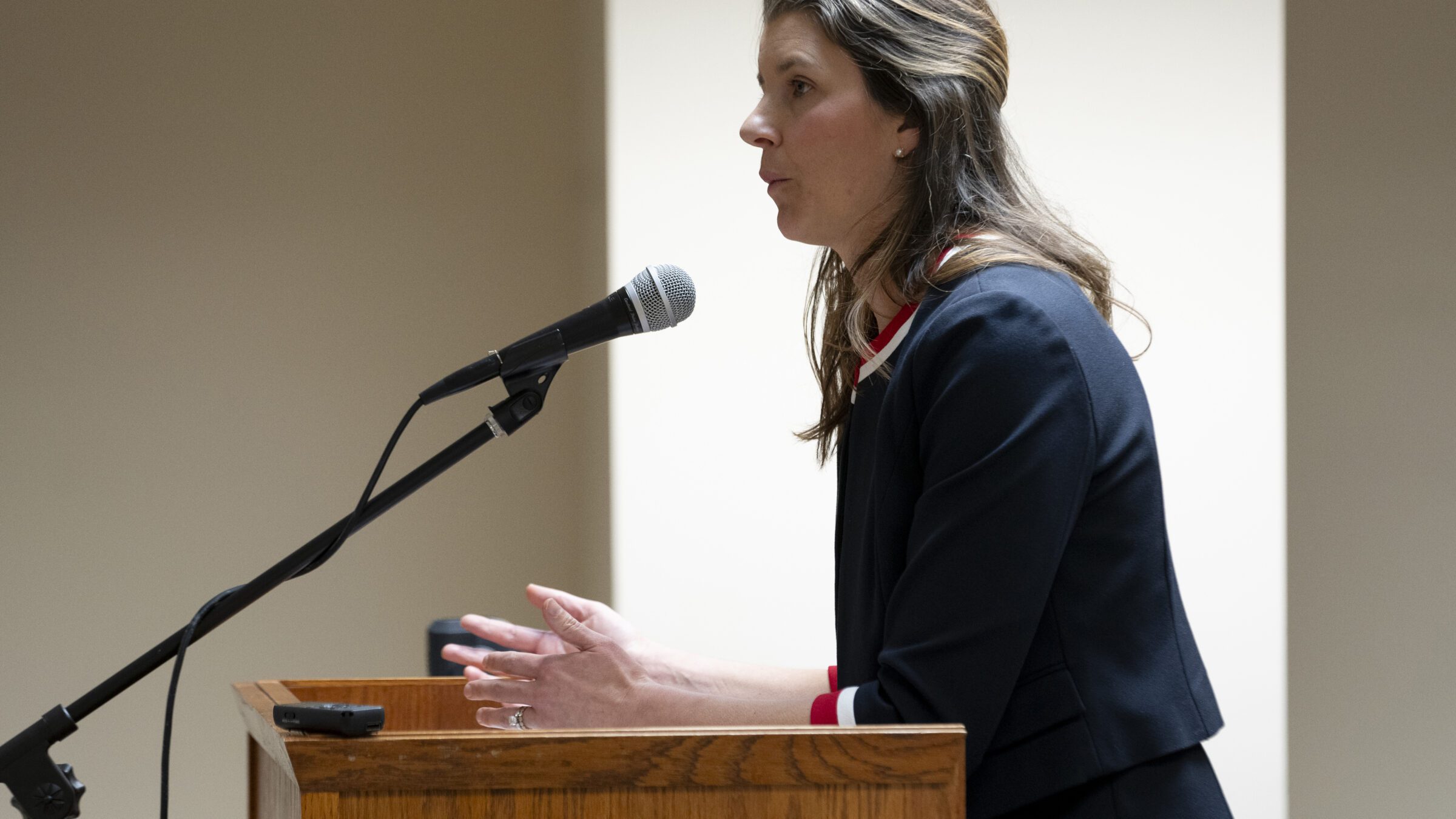
Hermandorfer argues an abortion access case in Tennessee state court, April 2024 (AP Photo/George Walker IV)
And if you look beyond Hermandorfer’s establishment credentials, I think you’ll find this is one of the few promises Trump is poised to keep. Hermandorfer’s current role is Director of the Strategic Litigation Unit in the Office of the Tennessee Attorney General. From what I can gather, the current strategy seems to be “support Donald Trump at all costs.” For example, Hermandorder’s office supported Trump’s racist, anti-constitutional executive order to ignore the Fourteenth Amendment’s Citizenship Clause for children born on U.S. soil to undocumented parents, notwithstanding 150-plus years of settled understanding to the contrary. She’s also a willing participant in Trump’s attacks on independent agencies: As she told the Supreme Court in a recent amicus brief, it’s agencies like the National Labor Relations Board, not unchecked executive power, that really present “an especially grave danger to the States and their citizens.”
To simplify: blatantly unconstitutional executive orders? Fine. Good, even. An agency meant to protect workers from unfair labor practices? Tyranny!
To be fair, Hermandorfer has shown that she can stand up to the White House—so long as the White House is occupied by a Democrat. During the Biden administration, Hermandorfer frequently challenged efforts to protect transgender Americans from discrimination and harassment. In one, she fought against the Department of Education’s updated rules providing protections for students against discrimination based on sex stereotypes, sexual orientation, and gender identity. And in another, she defended the rights of Tennessee employers to misgender their employees, by seeking to block enforcement of EEOC guidance preventing employers from harassing employees on the basis of their gender identity.
And of course, no Trump nominee would be complete without a clear anti-abortion track record, and Hermandorfer is no exception. Not content to merely defend Tennessee’s near-total ban on abortion, which lacks exceptions for rape or incest, Hermandorfer also challenged a Department of Health and Human Services rule that required facilities receiving federal funds to simply provide patients with information about where to get an abortion (and only if requested by the patient).
Of course, there shouldn’t be a Sixth Circuit vacancy for Trump to fill. Last spring, President Joe Biden nominated labor lawyer Karla Campbell to fill Stranch’s seat. But then-Senate Majority Leader Leader Chuck Schumer caved to Republican opposition faster than a white-shoe law firm, and Campbell never got a vote on the Senate floor.
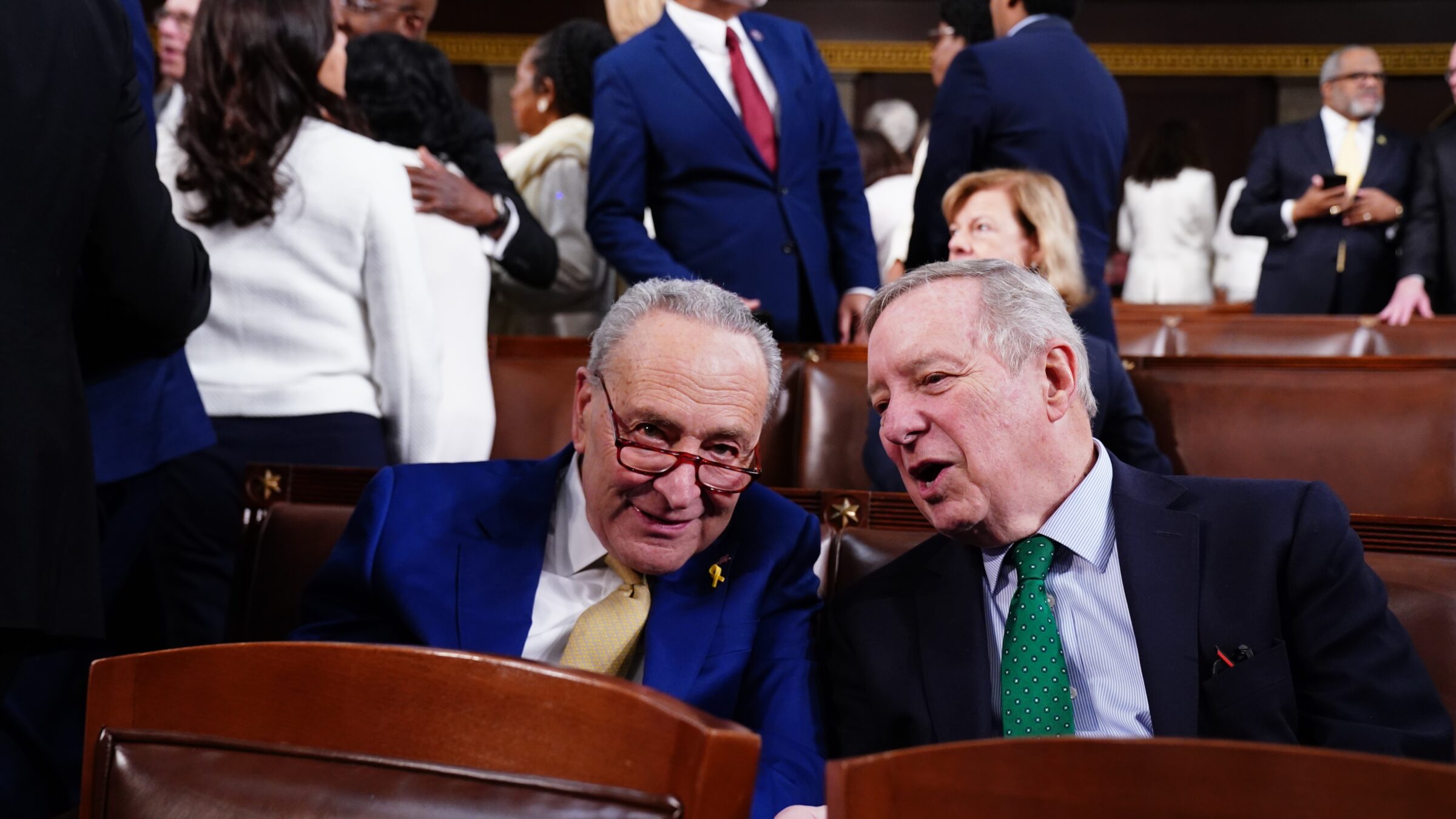
(Photo by Shawn Thew-Pool/Getty Images)
What’s next?
Hermandorfer will likely have a hearing before the Senate Judiciary Committee on June 4, and could be confirmed by the end of the month. The same is true of four nominees to Missouri’s district courts, which Trump announced on May 6: Joshua Divine, Missouri’s Solicitor General and a former law clerk to Justice Clarence Thomas and Judge William Pryor; Maria Lanahan, Missouri’s Principal Deputy Solicitor General; Zachary Bluestone, a federal prosecutor and former state Deputy Solicitor General; and state court judge Cristian Stevens. Divine, who graduated from college in 2012, led the successful challenge to Biden’s student loan forgiveness plan and defended state laws restricting transgender healthcare.
It’s worth noting that all four district court vacancies arose during the Biden administration, but blue slip abuse permitted by then-Judiciary Committee Chair Dick Durbin will allow Trump to fill these and more seats with his cronies. And if this slate of nominees foreshadows what’s to come, the next four years will be a painful reminder of Durbin’s rank ineptitude.
